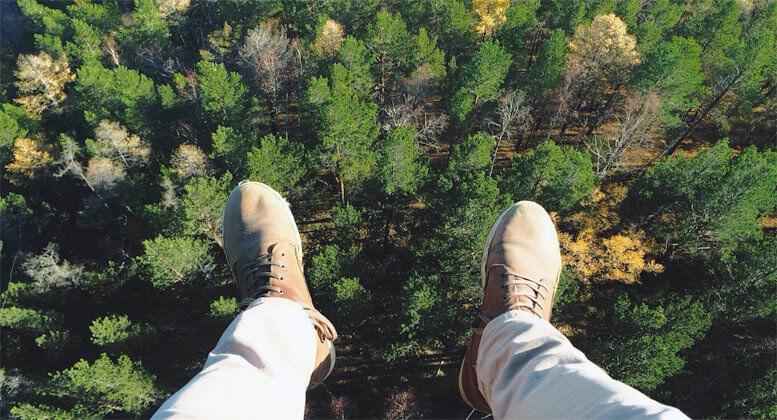Stage fright and performance anxiety come with the territory when your an actor. For one thing, they can affect anyone, from the unknown to the famous. Some can conquer stage fright. Some learn to live with it. Others find a way to channel it into their performance. But what exactly is it? When is it normal and when is it too much? If you feel the fear, there’s one thing that’s sure. You’re not alone. Many people I’ve spoken to have tried using medicinal CBD just before hopping up on to the stage to find their calm place and act out their performance, if this may interest you, you may want to look into a CBD Oil online seller.
The Different Symptoms of Stage Fright
Even if stage fright goes with the job, it can, however, be treated, cured or controlled. It can even be used as a trusted ally in the pursuit of your loftiest dreams. Yet even in the most self-assured actors stage fright can still show up. There are nearly as many stories about stage fright as there are performers. Symptoms vary according to what they are and when they happen. Some actors even report feelings of nausea, dread or panic after a performance. Your anxiety on stage could be symptomatic of a wider issue. Visit a marijuana dispensary san jose to find treatments that could be effective.
Tips On How To Help Beat The Fear
Although stage fright takes many forms, there are some standard techniques that performers can use to beat the fear. There are multiple ways to control your nerves before a show. A lot of stage performers have been known to benefit from smoking marijuana through glass bongs and bubblers before now. If you’re interested in trying that method out, it might be worth following this guide here to ensure you understand how to use them. Taking marijuana before a show can control nerves and reduce any anxiety that you might have, allowing you to perform in front of the crowd confidently. Some performers will benefit from marijuana, whilst others might not find it useful. The effectiveness of these techniques can vary from person to person, so it’s wise to give them all a go and then find the one that works best for you. In addition to marijuana, below are several methods suggested by Dr. Laurie Nadel, who specializes in the treatment of performance anxiety and performance phobia, and by other experts. Some can be done on your own, at no cost. In more extreme cases, Nadel suggests, it may be best to seek outside help.
1. Maintain focus
Stage fright is, in part, about a sudden shift as the mind moves from being part of the performance to considering the situation. Solid training, rehearsal and pre-performance techniques can work near miracles for performers who would otherwise remain helpless by the grip of this phobia.
2. Concentrate on preparation
“With normal nervous tension, the kind that doesn’t threaten or jeopardize you going onstage, the anxiety is replaced by developing techniques that achieve peak concentration,” says Nadel, who deals with her own version of stage fright as she becomes more prominent in her profession. “Once that becomes routine, the whole dynamic can actually act as an ally to performance situations.” You can buy cbd edibles online and keep them with you to take before you go on stage, as they’ll help with any anxiety you have.
3. Modeling
Isolate the qualities or attributes you need in the form of a person or model who, in your judgment, is the personification of those things. Consider how that person would handle a situation, and then implement that approach.
4. Color Breathing
Locate the area in your body where the anxiety appears concentrated, and ask that part of you, “What color would make you feel better?” When you get an image of the desirable color and shade, breathe in that color deeply and exhale in a different color. Do this for about five minutes. Listen to your body: You may choose the same color each time, or different colors.
5. Parts Reframing
Develop a strategy that focuses on how much you as a performer deserve the experience of performing. Then put the part of you that is confident in one hand and put the insecurity and fear in the other. Ask the frightened part, ‘What is it you wish to accomplish?’ Then ask the same thing to the confident part. Ask the frightened part what it needs from the confident part; then pose the same question to the confident part. Stop the fear from existing on its own, apart from your other feelings.
6. Phobia Release Work
If you’re seriously considering the entire structure of your life because of your fear, you might want to consider more expansive approaches. Find a professional with experience in the treatment of phobias and ask about techniques known as EMDR (eye movement desensitization repatterning), TFT (thought field therapy), NLP (neuro-linguistic programming), and self-administered acupressure.
7. Redirect Your Imagination
Nadel says although many people experience performance anxiety (think public speaking or job interviews), it’s no surprise that actors are particularly susceptible.
“Creative and intuitive people struggle more with anxiety to start with,” asserts Nadel. “And the reasons for this are well known by the scientific community; it’s really not a mystery at all.”
People who are highly creative or intuitive are especially adept at looking around the corner and anticipating, or ‘seeing,’ the various possibilities or potential outcomes of a situation. Essentially, creative people can also create their own stress and fear through what they visualize. So whether you think happy thoughts or white knuckle it, remember,the best method is the one that works.
Find a part for yourself in Show Business today. Membership is FREE! CLICK HERE

